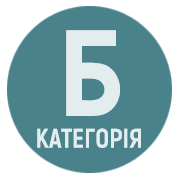FLEXIBLE REGRESSION EQUATION ALGORITHMS IN FORECASTING CHANGES IN THE HIХ-LINDHAL INDEX
DOI:
https://doi.org/10.32689/2523-4536/77-14Keywords:
independent variables, HIX-Lindahl index, triple effect, harmonious development, algorithm, flexible regression equationsAbstract
In the modern world, rapid changes in economic, financial, and social conditions require the development of accurate and effective forecasting methods. One of the important tools for evaluating economic processes is forecasting changes in specific indices, such as the Hicks-Lindahl index (HIX-Lindahl index), which reflects a comprehensive indicator of harmonious development. Thus, the outlined article explores the effectiveness of applying flexible regression equation algorithms in forecasting changes in the Hicks-Lindahl index. The study concludes that the flexible regression equation algorithms used for forecasting changes in the HIX-Lindahl index are formed using methods and techniques of statistical analysis aimed at creating accurate forecasting models. Flexibility is provided by an equation that introduces regularization conditions to allow the model to adapt to complex, nonlinear relationships between variables.
References
Ferro C., Padin C., Høgevold N., Svensson, G., & Sosa Varela, J. C. (2019) Validating and expanding a framework of a triple bottom line dominant logic for business sustainability through time and across contexts. The Journal of Business & Industrial Marketing, vol. 34(1), рр. 95–116.
Dyllick T., Muff K. (2016) Clarifying the meaning of sustainable business: Introducing a typology from business-as-usual to true business sustainability. Organization & Environment, vol. 29(2), 156 р.
Karyi O. I. (2011) Kompleksnyy rozvytok mist: teoriya ta metodolohiya stratehichnoho planuvannya [Integrated development of the city: theory of methodology and strategic planning]. Lviv: VLP.
Rudych O. O., Herasymenko I. O., Tkachenko K. V. (2016) Sutnistʹ ekonomichnoyi stiykosti pidpryyemstva ta protses yiyi zabezpechennya [The essence of economic sustainability of enterprises and the process of its provision]. Innovatsiyna ekonomika – Innovative Economics, vol. 11-12, pp. 74–76.
Krysovatyy A. I. (2015) Suchasna paradyhma fiskalʹnoyi polityky Ukrayiny v umovakh formuvannya suspilʹstva staloho rozvytku [Modern paradigm of fiscal policy of Ukraine in the conditions of forming a sustainable society]. Ternopil: TNEU.
Todoryuk S. I., Kutarenko N. Ya. (2016) Determinanty staloho rozvytku v orhanichnomu silʹsʹkomu hospodarstvi Ukrayiny [Determinants of sustainable development in organic agriculture of Ukraine]. Ahrosvit – Agrosvit, vol. 8, pp. 34–39.
Yudina O. I., Klimova T. V. (2018) Krytychnyy analiz ponyattya «stalyy ekonomichnyy rozvytok pidpryyemstva» [Critical analysis of the concept of “sustainable economic development of an enterprise”]. Efektyvna ekonomika, vol. 8. Available at: http://www.economy.nayka.com.ua/pdf/8_2018/58.pdf (accessed August 29, 2022).
Zahorsʹkyy V. S. (2018) Kontseptualʹni osnovy formuvannya systemy upravlinnya stalym rozvytkom ekoloho-ekonomichnykh system [Conceptual foundations of the formation of a management system for sustainable development of ecological and economic systems]. Lviv: LRIDU NADU.
Ferro C., Padin C., Høgevold N., Svensson, G., & Sosa Varela, J.C. Validating and expanding a framework of a triple bottom line dominant logic for business sustainability through time and across contexts. The Journal of Business & Industrial Marketing, 2019. № 34(1). Р. 95–116.
Dyllick T., Muff K. Clarifying the meaning of sustainable business: Introducing a typology from business-as-usual to true business sustainability. Organization & Environment, 2016. № 29(2). 156 р.
Карий О.І. Комплексний розвиток міст: теорія та методологія стратегічного планування: монографія. Львів : ВЛП, 2011. 470 с.
Рудич О.О., Герасименко І.О., Ткаченко К.В. Сутність економічної стійкості підприємств та процесу її забезпечення. Інноваційна економіка. 2016. № 11-12. С. 74–76.
Сучасна парадигма фіскальної політики України в умовах формування суспільства сталого розвитку: моногр. / за наук. ред. д-ра екон. наук, проф. А.І. Крисоватого. Тернопіль : ТНЕУ, 2015. 460 с.
Тодорюк С.І., Кутаренко Н.Я., Детермінанти сталого розвитку в органічному сільському господарстві України. Агросвіт. 2016. № 8. С. 34–39.
Юдіна О.І., Климова Т.В. Критичний аналіз поняття «сталий економічний розвиток підприємства». Ефективна економіка. 2018. № 8. URL: http://www.economy.nayka.com.ua/pdf/8_2018/58.pdf
Загорський В.С. Концептуальні основи формування системи управління сталим розвитком еколого-економічних систем: монографія. Львів : ЛРІДУ НАДУ, 2018. 336 с.









